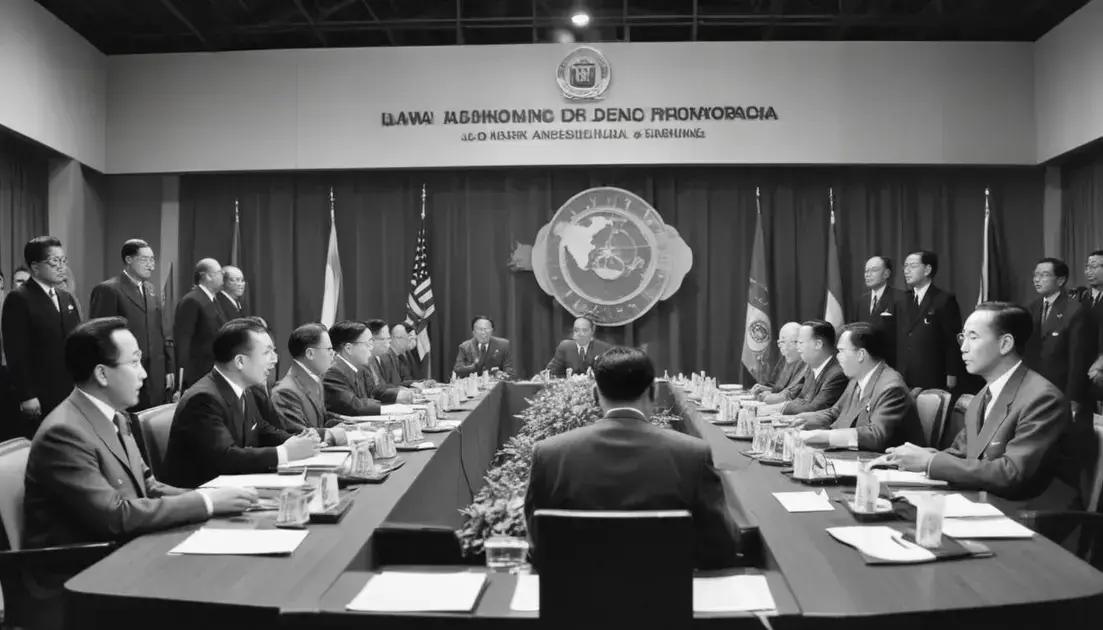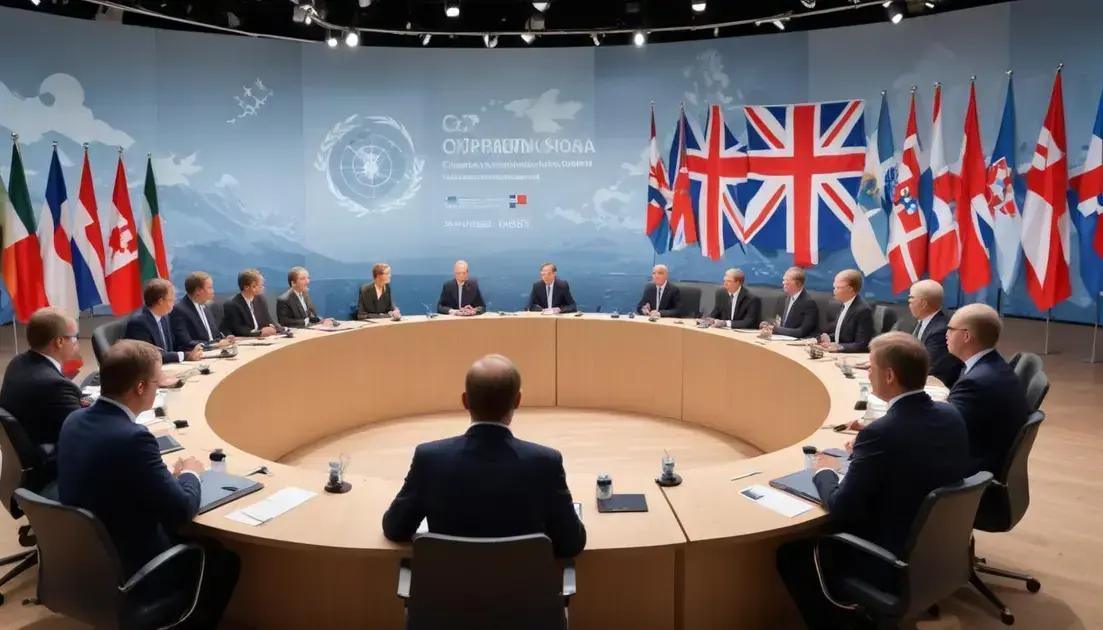
Bandung Conference: Birth of the Third World
The Bandung Conference of 1955 was a pivotal gathering of newly independent nations from Asia and Africa, aimed at promoting unity and cooperation against colonialism and superpowers. Key leaders like Jawaharlal Nehru, Sukarno, and Gamal Abdel Nasser advocated for the principles of self-determination and non-alignment, influencing international relations. This conference helped create a legacy that inspires current movements for independence and collective action on global issues, such as human rights and economic equality.
The Bandung Conference was a pivotal moment in post-colonial history, shaping the dialogue between newly independent nations. This gathering affirmed their autonomy and commitment to cooperation.
The Historical Context of the Bandung Conference
The Bandung Conference took place in 1955 in Indonesia. It was a gathering of countries that had recently gained independence. Many of these nations were in Asia and Africa. They faced common challenges from powerful countries like the US and the Soviet Union.
The main goal was to discuss issues like colonialism and racism. Leaders from 29 nations came together to express their desire for freedom and equality. They wanted to show the world that they could work together and support each other.
This meeting was historic. It marked the beginning of a movement known as the Non-Aligned Movement. Countries that didn’t want to side with either superpower could find a voice here.
During this time, many countries were fighting for their independence. Nations like Ghana, Egypt, and India were especially involved in promoting unity. The conference emphasized the importance of self-determination and respect among nations.
These discussions at Bandung encouraged cooperation. They paved the way for future dialogues and alliances. This conference is often seen as a turning point in the struggle against colonial powers.
Ultimately, the Bandung Conference helped shape the future of international relations. It inspired many countries to unite and support each other economically and politically. The seeds of self-empowerment and independence were sown here.
Key Figures Involved in the Bandung Conference
Many important leaders attended the Bandung Conference in 1955. These figures played key roles in shaping discussions and outcomes. One of the most notable leaders was Jawaharlal Nehru, the Prime Minister of India. He strongly advocated for unity among newly independent countries.
Another significant figure was Sukarno, the President of Indonesia, who hosted the conference. His leadership helped bring together diverse nations. He believed in the importance of collective strength and shared goals.
Gamal Abdel Nasser, the President of Egypt, was also present. He aimed to support nations in their fight against colonialism. His presence underscored the voice of African nations in the discussions.
Kwame Nkrumah, the first President of Ghana, played a crucial role too. His ideas on pan-Africanism encouraged unity among African countries. He inspired delegates to think beyond individual nations.
Other notable leaders included Josip Broz Tito from Yugoslavia, who pushed for non-alignment. Additionally, leaders from countries like Pakistan and Burma also attended the conference. Each brought unique perspectives and aims to the table.
The collaboration between these key figures led to a powerful message at Bandung. They showed that together, they could address imperialism and support each other’s independence.
Outcomes and Implications of the Conference
The Bandung Conference had lasting outcomes for countries involved. First, it promoted unity among newly independent nations. Leaders agreed on the importance of supporting each other. They wanted to work together against colonialism and imperialism.
One major outcome was the statement of principles. This included commitments to peaceful coexistence and mutual respect. Nations pledged to support the right of self-determination.
This conference also influenced the creation of the Non-Aligned Movement. Countries that didn’t want to align with major powers found a platform. This movement helped many nations maintain independence without outside influences.
The discussions led to stronger ties among Asian and African nations. Many countries began forming alliances. They started to collaborate on trade and cultural exchange. This helped boost their economies and foster relationships.
The Bandung Conference also impacted global politics. It raised awareness about the struggles of developing nations. The voices of these countries became more prominent in international discussions.
Overall, the conference inspired future generations. Leaders today still refer to its ideals of unity and cooperation. The spirit of Bandung continues to influence global relations.
Legacy of the Bandung Conference in Modern Politics
The Bandung Conference left a rich legacy in modern politics. Its impact is still felt today in many ways. The conference highlighted the voice of developing nations. These countries began to assert their rights on the global stage.
One key legacy is the idea of non-alignment. The Bandung spirit encourages countries to remain independent from major powers. This allows nations to make their own choices without outside pressure.
The conference also emphasized the importance of unity among nations. Countries learned the power of working together. This idea led to various alliances and cooperative efforts in politics and economics.
Furthermore, the Bandung Conference prompted discussions on issues like human rights and anti-colonialism. These topics remain relevant in today’s political climate. Many governments still reference the conference when discussing justice and equality.
In recent years, the principles from Bandung inspire new movements. Countries facing similar challenges gather to share ideas. They want to build a better future together. Issues like climate change and economic inequality benefit from this collaborative spirit.
The legacy of the Bandung Conference is powerful. It continues to shape how nations interact. The ideals of independence, cooperation, and mutual respect live on in today’s politics.
Conclusion
In conclusion, the Bandung Conference played a crucial role in shaping the relationships between newly independent nations. Its impact is still evident in today’s politics, promoting ideas like unity and non-alignment. The principles discussed at the conference continue to inspire countries seeking independence and cooperation.
Moreover, Bandung’s legacy emphasizes the importance of supporting each other in the global community. This spirit fosters collaboration against common challenges, such as colonialism and inequality. As nations face new issues today, the lessons from Bandung remind us of the power of working together.
Ultimately, the conference laid the groundwork for global dialogue among countries. It encouraged a collective approach to solve problems and strive for a better world. Understanding this legacy helps us appreciate the ongoing efforts for peace and equality among nations.


